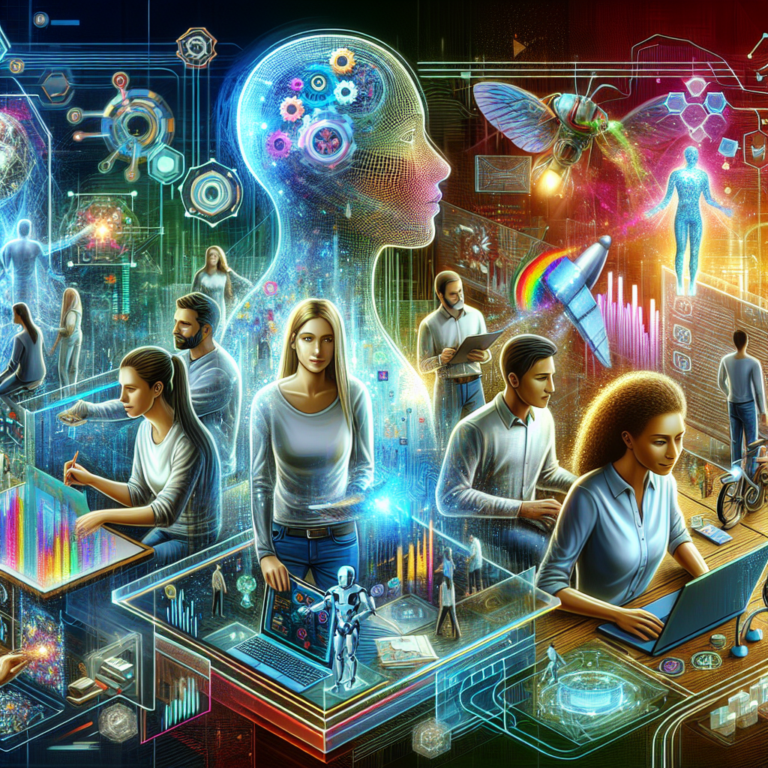AI Orchestration: Transforming Productivity Like Never Before in 2025
The tech world often sees certain years as milestones for dramatic progress. While 2024 was a period of exploration and the emergence of agent-based AI applications, 2025 is shaping up to be a remarkable year for productivity transformation through AI orchestration.
Boosting Productivity through AI Orchestration
According to Swami Sivasubramanian, the Vice President of AI and Data at AWS, 2025 will be crucial for productivity enhancement. As executives become increasingly aware of the costs tied to AI, understanding how different AI agents can optimize workflows within organizations becomes essential.
- Organizations will rethink and innovate their workflows.
- Precision and heightened productivity will take center stage.
- Leaders will seek concrete returns on their AI investments.
Akshay Krishnaswamy, the chief architect at Palantir, shares this view, indicating that executives are eager to witness the real benefits of their AI technologies. He observes, “People are understandably weary of continued sandboxing,” marking a shift towards real-life applications and visible results.
The Emergence of Orchestration Frameworks
As we enter 2025, the necessity for robust AI orchestration frameworks becomes clear. With many companies attempting to develop orchestration platforms, anticipation is building.
Chris Jangareddy from Deloitte points out that competition will become fiercer, particularly against established platforms like LangChain. This year, businesses will strive to construct a comprehensive orchestration layer, facilitating cooperation between various AI agents.
- Expect an influx of new orchestration framework options.
- Organizations will move away from relying on singular solutions.
- The marketplace for these essential tools will expand as they gain significance across diverse enterprises.
Although some of these frameworks are still in the experimental stage, there will be a strong move toward innovative solutions that furnish versatile AI capabilities. While LangChain remains a frontrunner, newer options like Microsoft’s Magentic and LlamaIndex are emerging as valuable alternatives.
Improving Agents and Their Integrations
As organizations head into 2025, AI agents remain in the spotlight. The challenge lies in ensuring these agents function seamlessly across varied systems.
Integration platforms such as AWS’s Bedrock and collaboration tools like Slack are stepping up to facilitate smooth interactions between AI agents. This interoperability allows for a free flow of information, enriching the productivity levels within enterprises.
- Prioritizing support for these integrations will be essential.
- It’s vital to educate orchestrator agents to differentiate between internal and external agents.
As the landscape of workflows changes, organizations will leverage innovative reasoning models, including OpenAI’s 03 and Google’s Gemini 2.0. These advancements will enhance the capabilities of orchestrator agents, making them more effective in complex operational environments.
Tackling the Last-Mile Challenge
While technological advancements are promising, a significant obstacle remains: ensuring employees effectively utilize the new AI tools. Don Vu, the chief data and analytics officer at New York Life, highlights this concern. He points out that many workers still prefer manual methods over AI solutions, leading to what is often termed the last-mile problem.
- Confronting the last-mile issue will require emphasis on change management.
- Efforts to foster employee adoption of AI technologies must be prioritized.
Vu remarks, “The last-mile problem is something that we’ve all stubbed our toe on,” emphasizing the need for organizations to focus on cultural shifts. Successfully navigating this change is vital for unlocking the full potential of AI.
Significant Future Changes Due to AI Orchestration
The trends influencing AI orchestration in 2025 signal pivotal changes not only in technological aspects but also in overall business operations. More companies will invest in building systems that enhance productivity and streamline workflows. The goal is to maximize return on investment by effectively leveraging AI tools and frameworks.
The fusion of advanced orchestration frameworks, improved agent capabilities, and a robust focus on productivity will play a crucial role in shaping the future of work. The orchestration of AI systems will extend beyond simple deployment; it will focus on nurturing valuable relationships between various AI agents and human staff members.
As we look ahead, 2025 is poised to be a transformative year for AI orchestration, redefining productivity as we know it.




0 Comments